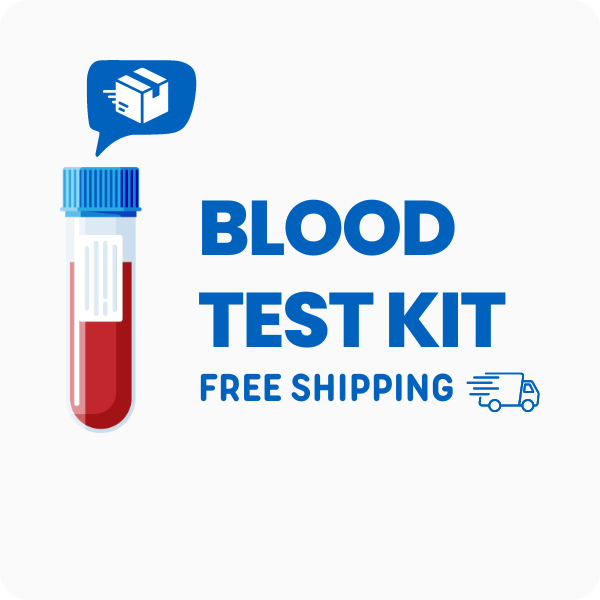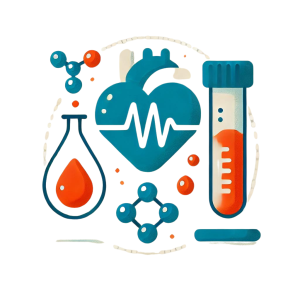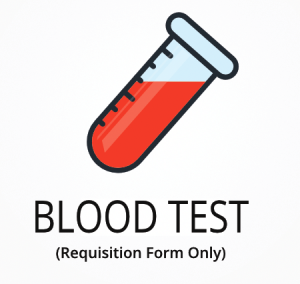 What is the CVMap – Boston Heart Exclusive Test?
What is the CVMap – Boston Heart Exclusive Test?
The CVMap test by Boston Heart Diagnostics provides a comprehensive insight into CVD risk by raising standard lipid assessment with advanced diagnostics. The unique combination of biomarkers – lipids and Lp(a) levels, as well as lipid particle numbers; markers of inflammation; and the Cholesterol Balance reporting are informative and actionable.
Why is the CVMap Test Important?
Understanding your cardiovascular health is crucial for preventing heart disease. The CVMap test offers insights into cholesterol balance and lipid levels which could help you and your healthcare provider make informed decisions about your heart health. This test is vital in conventional and functional medicine for early detection and personalized treatment plans. Always consult your primary healthcare provider.
Why Should You Consider Ordering the CVMap Test?
If you have a family history of heart disease, high cholesterol, or other risk factors, the CVMap test can be a valuable tool in managing your health. By assessing your lipid panel and other biomarkers, you may be able to take proactive steps to improve your cardiovascular health and reduce your risk of heart disease. However, it is always necessary to talk to your primary healthcare provider if you have a family history of heart disease, high cholesterol, or other risk factors. or if you are experiencing any signs and symptoms of the disease.
Labs Included in Your Order
| Test Name | Reference Range | High and Low Levels of CVMap Biomarkers |
|---|---|---|
| Total Cholesterol | Optimal: < 200 mg/dL | High: May increase the risk of heart disease.
Low: May indicate potential liver disease or malnutrition. |
| LDL-C | Optimal: < 100 mg/dL | High: May lead to plaque buildup and increase heart attack risk.
Low: May indicate hyperthyroidism. |
| HDL-C | Optimal: > 60 mg/dL | High: Protective against heart disease.
Low: May increase the risk of heart disease. |
| Triglycerides | Optimal: < 150 mg/dL | High: May increase risk of cardiovascular disease.
Low: Uncommon and may result from a low-fat diet. |
| Non-HDL-C | Optimal: < 130 mg/dL | High: May indicate an increased risk of cardiovascular events.
Low: Typically not concerning but could warrant dietary review. |
| Lp(a) | Optimal: < 30 mg/dL | High: May be associated with a higher risk of atherosclerosis.
Low: Generally not concerning. |
| ApoB | Optimal: < 100 mg/dL | High: May linked to increased heart disease risk.
Low: May indicate a metabolic disorder. |
| Small Dense LDL | Optimal: < 450 nmol/L | High: May increase risk of cardiovascular disease.
Low: Generally not a concern. |
| Large HDL-P | Optimal: > 11.1 μmol/L | High: May be associated with lower cardiovascular risk.
Low: May indicate higher cardiovascular risk. |
| Large VLDL-P | Optimal: < 2.0 nmol/L | High: May indicate increased cardiovascular risk.
Low: Generally not concerning. |
| hs-CRP | Optimal: < 1.0 mg/L | High: May indicate inflammation and increased heart disease risk.
Low: Low levels are generally normal. |
| Lp-PLA2 | Optimal: < 200 ng/mL | High: May indicate active inflammation in arteries.
Low: Generally not concerning. |
CVMap – Boston Heart Exclusive Test FAQ
What is the CVMap – Boston Heart Exclusive Test for?
The CVMap test is designed to provide a comprehensive evaluation of cardiovascular risk. It analyzes various biomarkers, including cholesterol levels, lipid particles, and inflammation markers, to give a detailed insight into your heart health.
What do low and high levels mean?
High levels of certain biomarkers like LDL-C and triglycerides may indicate an increased risk of cardiovascular diseases, while high HDL-C levels are generally protective. Low levels of these markers can indicate other health issues.
What are the signs and symptoms of the issue the test is testing for?
Signs and symptoms of cardiovascular issues include chest pain, shortness of breath, fatigue, and irregular heartbeat. These symptoms may indicate underlying problems such as atherosclerosis, heart attack, or stroke risk. Contact your primary healthcare provider immediately if you are experiencing any of these signs and symptoms.
How often should I retest?
It is recommended to retest annually or as advised by your healthcare provider, especially if you have risk factors for cardiovascular disease or if you are undergoing treatment for any heart-related conditions. Consult your primary healthcare provider first before the retest.
How accurate is the test?
The CVMap test from Boston Heart Diagnostics is highly accurate due to its comprehensive analysis of multiple biomarkers and advanced diagnostic methodologies.
Are test results private and confidential?
Receive test results securely on TrueHealthLabs.com under ‘My Account.’ It’s critical that you share them with your physician. Results may be disclosed to health authorities only if legally mandated, e.g., for STDs or COVID-19. Review our privacy policy for more details.
Medical Review Board
Reviewed by our medical review board consisting of Jeff Donohue M.D. from Body Logic and Brady Hurst DC, CCCN. Written by True Health Labs team of editorial health contributors.
Disclaimer: This information is for educational purposes only and not intended as medical advice. Consult your healthcare provider for personalized guidance.
Medical Review Board
Reviewed by Jeff Donohue M.D. from Body Logic and Brady Hurst DC, CCCN. Written by True Health Lab’s team of editorial health contributors.
Disclaimer: This information is for educational purposes only and not intended as medical advice. Consult your healthcare provider for personalized guidance.
Also rated 4.6 out of 5 based on 3439 ShopperApproved reviews- See all TrueHealthLabs.com reviews.



 What is the CVMap – Boston Heart Exclusive Test?
What is the CVMap – Boston Heart Exclusive Test?



